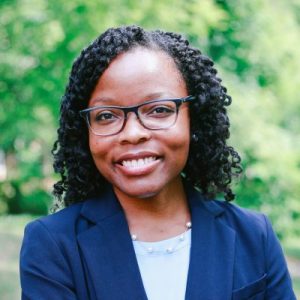Well-Being Initiative for Women Faculty of Color

Registration is now open for the Well-Being Initiative for Women Faculty of Color to Promote Professional Advancement in Pharmacy and Pharmaceutical Sciences Research
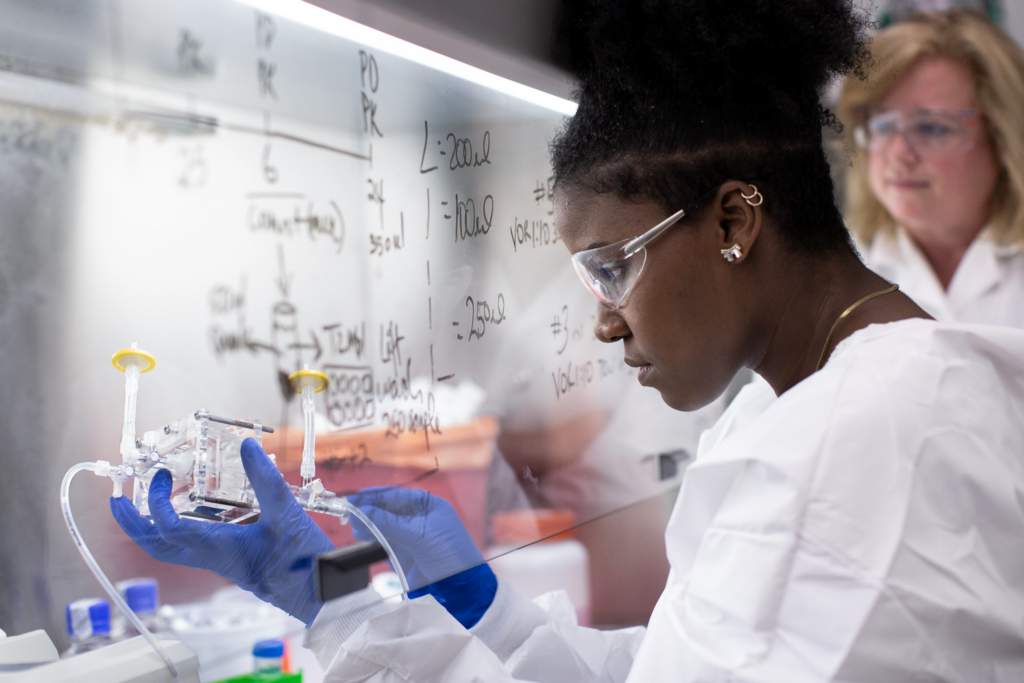 We are excited to open the Program Registration to BIPOC (Black, Indigenous, and People of Color) women faculty at the Assistant or Associate Professor level in Schools and Colleges of Pharmacy and Departments of Pharmacology at research-intensive predominantly white institutions (PWIs) nationwide.
We are excited to open the Program Registration to BIPOC (Black, Indigenous, and People of Color) women faculty at the Assistant or Associate Professor level in Schools and Colleges of Pharmacy and Departments of Pharmacology at research-intensive predominantly white institutions (PWIs) nationwide.
A cohort of 25 BIPOC women faculty are invited to participate in a one-year longitudinal program designed to support their retention, advancement, and sustained professional success through wellness and well-being. The one-year program will feature:
- Connection through quarterly virtual and in-person conferences;
- Coaching through quarterly, one-on-one wellness coaching; and
- Community through facilitating communication, professional networking, relationships, and exchange of information through online platforms designed to support and build the cohort as a community
The Program Curriculum is divided into four core units that will be explored with cohort members during quarterly virtual and in-person conferences over the course of the two years:
Program Conference Dates
Year 1
- Unit 1 – Renew: Selfcare and Leadership(Virtual)
- Unit 2 – Restore: Authenticity and Self-Advocacy(Virtual)
- Unit 3 – Reset: Resilience and Negotiating Skills(Virtual)
- Unit 4 – Refocus: Goal Setting and Negotiating Advanced Roles (Virtual)
Register today! Space is limited.
Registration to join the cohort is available now until January 31, 2022.
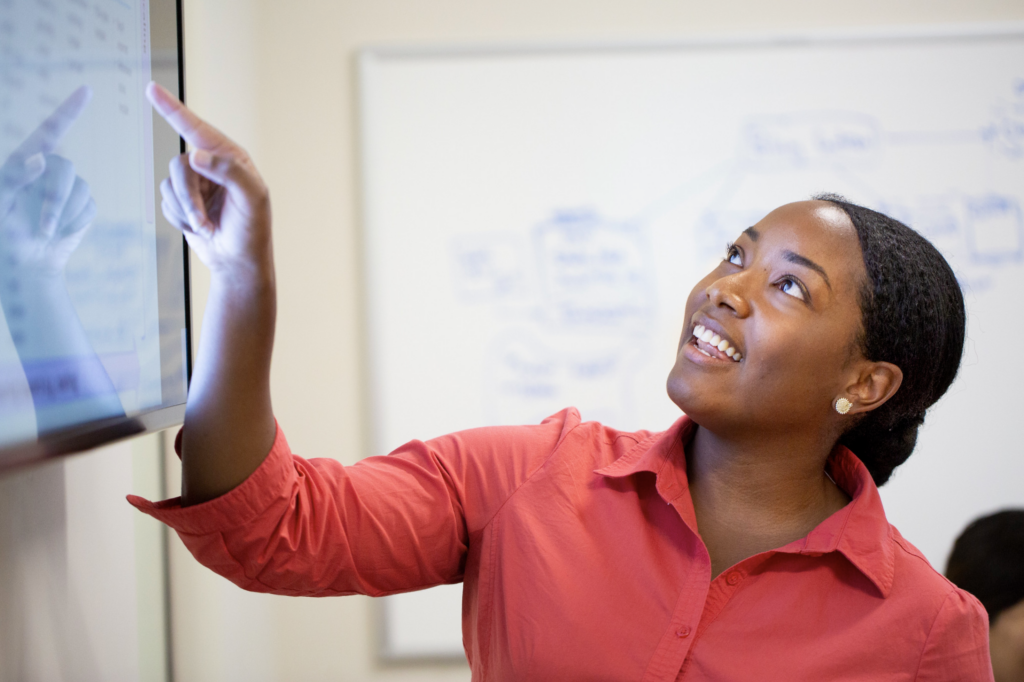 The “Well-Being Initiative for Woman Faculty of Color to Promote Professional Advancement in Pharmacy and Pharmaceutical Sciences Research” is designed to support the retention, advancement, and sustained success of BIPOC (Black, Indigenous, and People of Color) women faculty in biomedical research at research-intensive institutions across the nation.
The “Well-Being Initiative for Woman Faculty of Color to Promote Professional Advancement in Pharmacy and Pharmaceutical Sciences Research” is designed to support the retention, advancement, and sustained success of BIPOC (Black, Indigenous, and People of Color) women faculty in biomedical research at research-intensive institutions across the nation.
We believe that well-being is a critical prerequisite to achieving faculty retention, self-advocacy, leadership development, and professional advancement. Programs that specifically focus on well-being among BIPOC women faculty in biomedical research at predominantly white institutions (PWIs) are lacking and widely nonexistent. While mentorship, leadership, and other professional skills programs are helpful and important to the support systems in place for BIPOC women faculty, academic intensity without a foundation of personal well-being is unsustainable, leading to limited but short-lived advances for BIPOC women faculty. A focus on well-being and resilience has been identified by key stakeholders in the pharmacy profession as a critical strategy to sustain the pharmacy workforce.
The overall goal of the Program is to support the professional advancement of early- and mid-career BIPOC women faculty in pharmacy and pharmaceutical sciences research by implementing a longitudinal well-being program within a culturally inclusive virtual community.
BIPOC women faculty at Schools and Colleges of Pharmacy and Departments of Pharmacology are invited to participate in this research study to evaluate the impact of the Program on their overall well-being, career advancement, and sustained professional success.
This two-year program is designed for a cohort of 25 BIPOC women faculty currently at the Assistant and Associate Professor levels, including tenure-track and research/clinical-track faculty, in Schools of Pharmacy and Departments of Pharmacology at research-intensive, predominantly white institutions (PWIs) from across the United States. This innovative program uses a three-fold approach to well-being support for the BIPOC women faculty: 1) Connection through virtual and in-person conferences; 2) Coaching through ongoing wellness coaching; and 3) Community through facilitating communication, professional networking, relationships, and exchange of information through online platforms.
The program will include quarterly well-being conferences – three 1.5-day, virtual conferences, and one 3-day, in-person conference each year for two years. The well-being conferences will focus on developing consistent self-care practices for holistic well-being: mind, body, spirit. The programs will focus on building self-advocacy skills and leadership development with recognition of the intersectionality of identity as a BIPOC woman in academia. The conferences will feature guest speakers, small group discussions, and self-reflective and relaxing activities.
Each cohort member will also have the opportunity to receive 1-on-1 wellness coaching sessions with a wellness coach every three months. Participation is completely voluntary. The cohort community will be supported by an online platform with ongoing administrative support to facilitate communication and community building.
IRB #20-3724
Principal Investigator: Carla White
Co-Investigator: Suzanne Harris, Klarissa Jackson
The UNC Eshelman School of Pharmacy, in partnership with Houston Wellness Workshops for Women (H3W), has developed this innovative program to support the well-being and professional advancement of BIPOC women faculty in pharmacy and pharmaceutical sciences research.
Who is sponsoring this study?
This research is being funded by The Genentech Foundation, a member of the Roche Group. Klarissa Jackson, the co-investigator on this study, is a faculty member with UNC Eshelman School of Pharmacy. She will be working on the research with a family member as external vendor.
If you would like more information, please contact the researchers listed on our Meet the Team page.
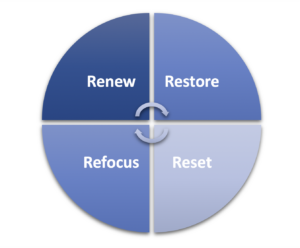 The program curriculum is divided into four core units that will be explored with cohort members during the quarterly virtual and in-person conferences over the course of two years. Part 1 of each unit will be featured during Year 1 of the Program, and Part 2 will be featured during Year 2.
The program curriculum is divided into four core units that will be explored with cohort members during the quarterly virtual and in-person conferences over the course of two years. Part 1 of each unit will be featured during Year 1 of the Program, and Part 2 will be featured during Year 2.
In Unit 1 of the Program, members of the cohort will be introduced to the concept of personal wellness and cultivating well-being as a leadership skill. This unit will focus on the individual scientist as central to the scientific enterprise and unique in her contributions to its advancement. This premise supports a focus on wellness first as an act of self-care addressing mental, emotional, physical, spiritual, and intellectual health for the individual scientist. With a foundation of personal wellness, the leader extends space, creates opportunities, and implements follow-up and check-in strategies for wellness among the members of her team. An ethic of radical self-care promotes the empathy, self-reflection, introspection, and compassion required for high-functioning intellectuals to remain meaningfully engaged in scientific pursuits and highly productive over the course of a long, successful career.
Workshops, keynote speakers, and breakout sessions in Unit 1 will teach strategies and tactics for implementing daily routines of self-care for the mind, body, and spirit of the individual scientist. Specific topics in Part 1 of Unit 1 will include mindfulness, meditation, morning routines, consistent exercise as a tool for emotional and mental well-being, and establishing baseline health markers. In Part 2 of Unit 1, additional topics will include, scheduling to avoid becoming overwhelmed, signs of burnout, and the power of regularly engaging professional team members like a therapist and primary care physician in support of a personal wellness program. Members of the cohort will have the opportunity to take the Well-Being Index (WBI) and Maslach Areas of Worklife Survey (AWS) during Part 1 of Unit 1, along with the personal leadership style assessment tool. Participation is completely voluntary.
Unit 2 of the Program will introduce and explore the concept of authenticity, its value to the scientific process, and its power to shape one’s internal experience within the external environment of a research-intensive institution. Authenticity requires an acceptance of the personal existence and qualities of oneself as independently valuable – without association to externalities like achievement or accolades. Embracing oneself as valuable and worthy of care, compassion, and consideration lends itself to a practice of productive, consistent self-advocacy as an extension of wellness and self-care. These practices, sustained in consistent ways as of first priority, form the foundation for long-term, sustained success in hierarchical environments like academia for biomedical sciences.
Sessions in Unit 2 will focus on assessing personal values in support of authenticity as a professional. Part 1 of Unit 2 will include sessions on identifying the “big why” for the individual scientist, articulating personal stories, honoring personal stories as valid sources, strategies for serving personal values in a mission-driven context, and effective self-advocacy skills. In Part 2 of Unit 2, cohort members will build on these themes through sessions addressing authenticity as key to creating supportive networks, leading from a place of authenticity and empowering others to do the same, and authentic communication. Members of the cohort will have the opportunity to take the adapted General Self-Efficacy Survey (GSES) during Part 1 of Unit 2. Participation is completely voluntary.
In Unit 3, members of the Program cohort will explore the concept of resilience and the power of negotiating skills to promote sustained success and advancement in the face of challenges. A resilient mindset first accepts the inevitability of external obstacles, barriers, and challenges in pursuit of long-term success. The next step is to reframe resilience not as an externally-imposed, predetermined set of generic aspirations but instead as an internally-motivated acceptance sustained by authenticity and replenished by radical self-care. Finally, resilience calls for developing personalized strategies supported by specific tactics to effectively negotiate between the stakeholders most capable of diminishing or eliminating the barriers. This unit will teach resilience as the forward-moving energy to progress from 1) assessment and acknowledgment to 2) acceptance, and on to 3) action, with respect for each phase.
In Part 1 of Unit 3, sessions will focus on acknowledging systemic barriers within research-intensive institutions including racial, gender-based, heteronormative, patriarchal, cultural, socioeconomic, and historical structures; the appropriate role of anger and disappointment; identifying and challenging personal limiting beliefs; channeling energy into effective action; harmonizing multiple roles including partner, parent, and professor; and key negotiation skills. Part 2 of Unit 3 will build on these themes by emphasizing strengthening support networks; asking for and effectively enlisting help; mobilizing mentors; developing sponsors; and negotiation as the relentless pursuit of the “win-win.” Members of the cohort will have the opportunity to take the Maslach Burnout Index (MBI) during Part 1 of Unit 3. Participation is completely voluntary.
Unit 4 of the Program will focus on setting personal and professional goals, strategizing to achieve those goals, and targeting specific steps in the process of advancement, including new leadership roles. The cohort members will learn first that personal goals are equally important to professional goals and should be identified and pursued on a continuum of personal wellness – in support of, not in conflict with, professional achievement. Once personal and professional goals have been identified, members of the cohort will be supported in developing strategies and frameworks for achieving those goals. Professional goal-setting will be aided by close reference to and alignment with institutional success metrics/guidelines for faculty tenure and promotion (e.g., extramural grant funding, publications, conference presentations, and other scholarly work, national reputation, teaching, leadership, and service contributions). Finally, members of the cohort will develop personal strategic plans to achieve their articulated personal and professional goals. All goals and strategic plans will be 1) written, 2) articulated to oneself, 3) shared with accountability partners and mentors, and 4) revisited at regular intervals to be reassessed, realigned, and revised as needed.
Sessions in Part 1 of Unit 4 will focus on identifying personal and professional goals, drafting strategic plans to achieve those goals, and fairly assessing personal progress towards identifying goals. In Part 2 of Unit 4, sessions will focus on reviewing strategic plans to achieve personal and professional goals, recognizing the value and timing of revising a goal or strategy, the role of authenticity in supporting goal development and achievement, and the continuing role of wellness and self-care in support of personal and professional goals.
Members of the cohort are invited to participate in this research study to evaluate the impact of the Program on the participants’ overall well-being, career advancement, and sustained professional success. Participation is completely voluntary. Members of the cohort who agree to participate in this research will take confidential well-being assessments evaluating three factors: well-being, burnout, and their self-perceptions of self-efficacy in their professional academic roles. IRB-approve surveys have been developed using the following validated instruments:
- Well-being: The Well-Being Index (WBI) measures personal well-being and multiple dimensions of distress. The Maslach Areas of Worklife Survey (AWS) measures professional well-being through employees’ perceptions of work-setting qualities.
- Burnout: The Maslach Burnout Index (MBI) measures burnout on three types of feelings: (1) emotional exhaustion, (2) depersonalization, and (3) low personal accomplishment.
- Self-efficacy: The assessment of self-efficacy will be adapted from the General Self-Efficacy Survey (GSES) based on the socio-cognitive theory of perceived self-efficacy according to Bandura. Self-efficacy is defined as one’s “beliefs in their personal ability to manage life demands.”
Analysis of these assessments will compare pre- and post-survey responses to identify impact of the program on cohort members’ well-being, burnout, and self-efficacy over time.
Cohort members will also have the opportunity to self-report on a voluntary basis indicators of career advancement (e.g., faculty reappointment, promotion and/or tenure, appointments to leadership positions, professional success (e.g., awards, grants, etc.), as well as retention within their academic institution, or movement to a new institution. Survey responses will not be linked to personal identifier information. Data will be presented in aggregate to protect the identity of cohort members.
IRB #20-3724
Principal Investigators: Carla White
Co-Investigator: Suzanne Harris, Klarissa Jackson
UNC Eshelman School of Pharmacy Partners
 Carla White, BS Pharm
Carla White, BS Pharm
Associate Dean for Organizational Diversity and Inclusion
Associate Dean Carla White’s expertise in diversity, equity, and inclusion initiatives, strategic planning, and leadership will be vital to the long-term success of this program to support women faculty of color within Schools of Pharmacy. Carla White is a pharmacist and associate dean of Organizational Diversity and Inclusion at the UNC Eshelman School of Pharmacy. Her strategic leadership, versatility, and relentless drive for innovation have become hallmarks of her tenure at the University of North Carolina at Chapel Hill.
Under White’s vision to build innovative education and program models, she was able to build a sustainable institutional strategy. White has achieved national prominence for her work, including numerous invited speaking engagements and the publication of a number of peer-reviewed articles, as well as a white paper on Diversifying Our Investment in Human Capital.
White served as the Principal Investigator for an $80,000 grant from the North Carolina Department of Health and Human Services
Klarissa Jackson, PhD
Assistant Professor of Pharmacotherapy and Experimental Therapeutics
Dr. Klarissa Jackson initiated the development of this program for women faculty of color based on her first-hand experience as an early career African American faculty member and pharmaceutical sciences researcher. Dr. Jackson joined the faculty at the UNC Eshelman School of Pharmacy as an assistant professor in the Division of Pharmacotherapy and Experimental Therapeutics in 2019. Her research laboratory focuses on understanding the mechanisms of interindividual variability in drug metabolism and response to identify risk factors for adverse drug reactions. The long-term goal of her research program is to improve drug safety and advance precision medicine in ethnically diverse populations.
Prior to joining UNC, Jackson was an assistant professor at Lipscomb University College of Pharmacy in the Department of Pharmaceutical Sciences and an adjunct assistant professor at Vanderbilt University in the Department of Pharmacology. Jackson received her B.S. in chemistry from Jackson State University and her Ph.D. in pharmacology from Vanderbilt University. She completed a postdoctoral fellowship at the University of Washington School of Pharmacy in the Department of Medicinal Chemistry.
Jackson’s research program has been supported by funding from the NIH National Cancer Institute Center to Reduce Cancer Health Disparities, the National Institute of General Medical Sciences, and the American Association of Colleges of Pharmacy. She is an active member of the American Society for Pharmacology and Experimental Therapeutics, where she serves on the Drug Metabolism and Disposition Division Executive Committee and the Mentoring and Career Development Committee.
Disclosure
Dr. Klarissa Jackson, co-investigator on this study, is the sister of Mrs. Karla Aghedo, Founder and CEO of Houston Wellness Workshops for Women (H3W).
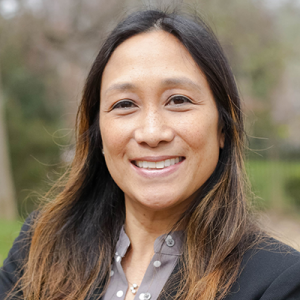 Suzanne Harris, PharmD
Suzanne Harris, PharmD
Director of Well-being and Resilience, Assistant Professor of Practice Advancement and Clinical Education
Dr. Suzanne Harris’s role as Director of Well-being and Resilience at the UNC Eshelman School of Pharmacy is an asset to the project team based on her expertise in mental health, well-being, and assessment strategies. Suzanne Harris is an assistant professor in the Division of Practice Advancement and Clinical Education at the UNC Eshelman School of Pharmacy. She also serves as a clinical pharmacy specialist in psychiatry at UNC Medical Center, where she is involved with psychiatric medication management for patients with psychosomatic disorders.
Harris received her Doctor of Pharmacy degree in 2002 from the University of Texas College of Pharmacy at Austin and completed a psychiatric specialty residency with Kaiser Permanente Colorado Region in Denver, Colorado. Harris’ career and research interests are focused on stigma and mental health and their relation to overall wellness in pharmacy students and pharmacists, transitions of care and cultural competency for psychiatric patients, and innovative practice models and teaching strategies. Harris serves in leadership roles and is an active member of several national organizations (American Association of the Colleges of Pharmacy, College of Psychiatric and Neurologic Pharmacists, National Alliance of Mental Illness) with invited speaking engagements on mental health and well-being.
Wellness Organization
 Karla Aghedo
Karla Aghedo
Founder and CEO, H3W (Houston Wellness Workshops for Women)
H3W will oversee the overall development, planning, organization, implementation, and evaluation of the virtual and in-person conference experiences throughout the duration of the program. Karla J. Aghedo is the Founder and CEO of Houston Wellness Workshops for Women (H3W). After a decade of practicing as an attorney in a global law firm, Aghedo started H3W with the whole professional woman in view – mind, body, and spirit.
Through H3W, Aghedo curates wellness experiences, information, and resources for professional women who want to reclaim their power through wellness. H3W offers wellness coaching, workshops, retreats, networking events, and memberships to create a community of support for the mental, physical, and spiritual well-being of its community. In fulfilling the vision for H3W, Aghedo combines her own experience with the recurring themes from hundreds of conversations with women in the same grind – lawyers, doctors, engineers, nurses, teachers, accountants, professors – facing the same struggles.
Mrs. Karla Aghedo is the sister of Dr. Klarissa Jackson, co-investigator on this study.
Register today!
Registration to join the cohort is available now until January 31, 2022. Space is limited!
Complete the form if you are interested in joining our contact list for the Program.
BIPOC women faculty will be invited to take part in research activities through the Program, including well-being assessment surveys and self-reported career advancements. Participation in research activities is completely voluntary and will include informed consent. Participation in assessment activities is not required to join the Well-Being Initiative programming.
Your email address will be provided to the wellness organization, Houston Wellness Workshops for Women (H3W), to be used 1) for the invitation to complete the electronic surveys, including the informed consent survey and program assessments, and 2) to communicate information about the virtual and in-person conferences, coaching sessions, and other cohort program activities. Email addresses will not be linked with the survey data.
Carla White
Office of Organizational Diversity and Inclusion
UNC Eshelman School of Pharmacy
(919) 966-7571
Carla@unc.edu


